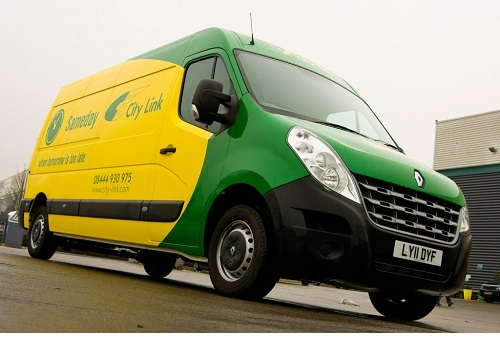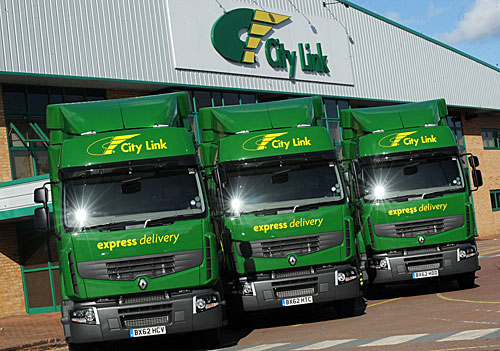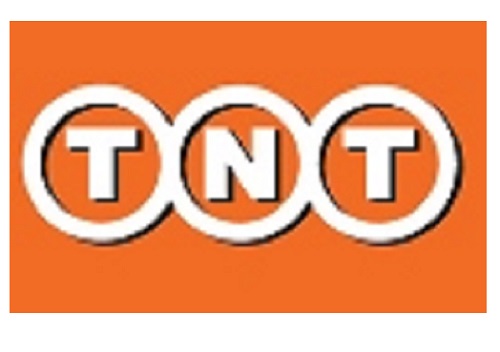
City Link had “viable” turnaround plan before Christmas collapse, says Smith

Former City Link boss David Smith told MPs yesterday that his company had a plan to return to profitability by May 2015 before its private equity owners pulled the plug just before Christmas. The UK parcel carrier went into administration on Christmas Eve, before making thousands of employees redundant on New Year’s Eve.
Smith was giving evidence to a House of Commons inquiry into the matter, explaining that the company had a plan to slim down and focus on its business-to-business contracts, in a move that could have restored profitability.
He revealed that after penning an email to senior management stressing that City Link had no intention of ceasing trading on 21st December, at 2am on the 22nd of December the private equity owner Better Capital decided to withdraw support, leading to the company going into administration.
Smith said the decision was made that City Link was not moving back into profitability soon enough, and needed more than £20m in additional investment to return to the black — after an unexpectedly difficult 2014.
Smith said that after Better Capital withdrew support on 22nd December, City Link and its administrators did not announce the administration immediately in order to protect the business.
He told the MPs on the Scottish Affairs, Business Innovation and Skills Committee: “We concluded… that it would be better for the creditors to continue to trade until Christmas Eve — or Christmas Day/Boxing Day, they don’t really make any difference in a trading sense — because to have not done that would have resulted in panic and severe difficulty for customers, suppliers, and the general public in the movement of those parcels. And that was why we made that decision.”
Underlying problems
 Ex-City Link CEO David Smith giving evidence to a House of Commons committee yesterday
Ex-City Link CEO David Smith giving evidence to a House of Commons committee yesterday
The problems with City Link stretch at least as far back as 2007, when it was merged with Target Express, Smith said. The two different parts of the merged company operated under separate IT systems that couldn’t work well together.
The company’s IT problems meant it had no visibility on its parcels, and couldn’t even tell whether items going through the network were profitable — or whether key contracts were profitable.
Smith revealed that a number of large contracts were subsequently found to be loss-making as IT upgrades were made. By December 2014, he said a single contract representing 28% of City Link’s monthly volume was suffering a £1 loss on every single delivery.
When Smith joined City Link as CEO in 2011, he said his first month in charge saw the company losing £7.5m, with the full 12 months losing £66-67m.
As well as failing to get to grips quickly enough with the IT problems, Smith explained that City Link’s downfall was also driven by changes in the market, and the company’s inability to respond or compete with rivals.
And, he said: “Fundamentally, we couldn’t find an investment partner to complete the journey with us.”
Turnaround plan
Smith said that on 22nd December as Better Capital pulled the plug, his fellow directors were still in the belief that the company could be turned around.
“What we believed, though, was that it would take longer than we’d originally thought. And certainly take more money to do that,” he said.
City Link had already terminated its postal business, which Smith said could no longer compete in the marketplace following the privatisation of Royal Mail. The ex-City Link CEO also said his company had made “great strides” in fixing its IT problems, but having to make major operational changes at the same time in order to compete proved too difficult in 2014.
A condition of the sale of City Link by Rentokil to Better Capital in April 2013 was that City Link had to separate from Rentokil’s IT estate by April 2014, and Smith indicated that meeting this deadline had proven too much of a challenge.
By the summer, the company had stopped making operational changes to focus on the IT problems.
After some positive improvements in City Link’s results in 2012 and 2013, Smith said from the second quarter of 2014 results were slipping again.
“In May we identified to Better Capital that we were significantly behind our budgets. In June we wrote a paper to Better Capital that we would be needing £20-25m of additional funding,” Smith told MPs, adding that Better Capital at the time continued to be supportive, encouraging City Link to continue with plans to invest in handheld computing systems.
Review
By 9th October directors were carrying out a major review into 10 different options to save the company.
Smith said the company spoke to 17 different rivals about buying City Link, of whom only one had the interest and financial muscle to do so. The interested party then lost interest later in the process.
When Better Capital pulled the plug just before Christmas, Smith said his directors had still been of the opinion that they had a “viable” plan to restore profitability within six months.
Smith said some of the City Link depot network would have been closed as it sought to become a B2B-only business, and negotiations had been underway with landlords over the depots that would not be needed.
“We had made great progress on the physical restructuring of the sites. We had made great progress on the restructuring of the overheads of the company. And we had developed, although not completed, work on the plans around the operation as a smaller business,” he explained. “We’d also put price increases into the market in late December, we had served notice on our postal business, which was loss-making, following the privatisation of Royal Mail we could no longer make money in that part of the market.
“We had also made great strides in terms of the parcel broker part of the market, to close the loss-making accounts. So we had a very clear plan that took us from December through to the end of May that took us from losses to breaking profit.”













